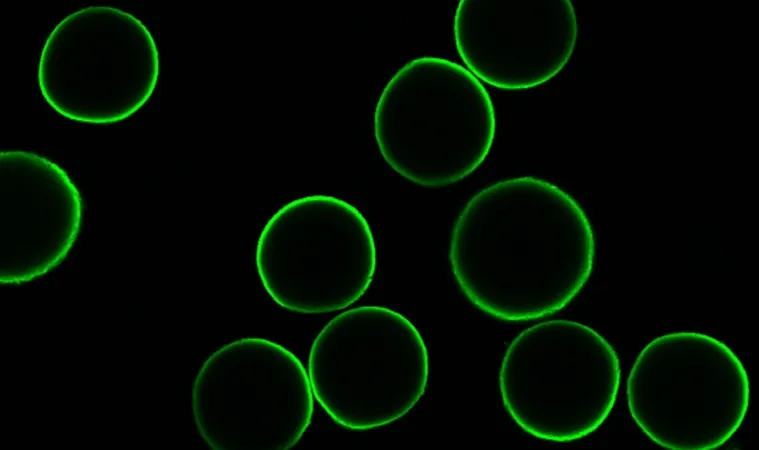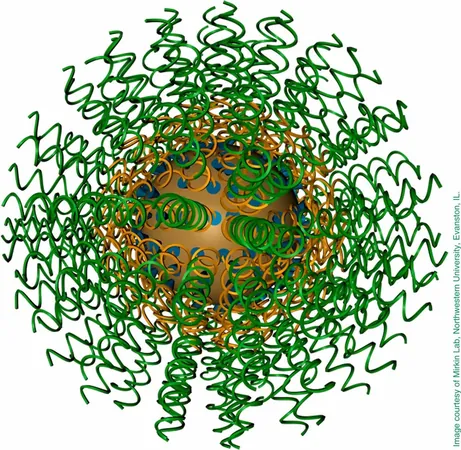
Revolutionary Antibody Fragment Could Transform Contraception
2025-04-14
Author: Siti
A Breakthrough in Contraceptive Science!
Exciting new research from the prestigious Karolinska Institutet is promising to reshape our understanding of contraception. Scientists have unveiled a groundbreaking approach using a modified antibody fragment that effectively blocks fertilization by targeting a crucial protein on the surface of eggs. This remarkable discovery is a major step toward realizing nonhormonal contraceptives.
How It Works: The Science Behind the Magic
The research, published in the Proceedings of the National Academy of Sciences, centers around the antibody fragment, which specifically identifies and targets the protein ZP2. According to Professor Luca Jovine of the Department of Medicine, Huddinge (MedH), "Our study demonstrates how a small antibody fragment can block fertilization by targeting ZP2, a vital protein in the egg's outer layer that plays a significant role in sperm binding and preventing multiple sperm from entering."
X-Ray Crystalography: Peeking into the Future of Fertility
Utilizing X-ray crystallography, researchers meticulously mapped the interaction between a well-studied antibody, known to inhibit fertilization in mice, and ZP2 at an atomic level. Remarkably, a smaller, modified version of this antibody (scFV) proved just as effective, successfully obstructing fertilization in 100% of in vitro fertilization (IVF) trials involving mouse eggs. Best of all, this compact version eliminates the immune-triggering Fc region of the full antibody, significantly reducing potential side effects.
Say Goodbye to Hormonal Side Effects!
Traditional contraceptive methods predominantly rely on hormones, which often come with undesirable risks—mood swings, headaches, and even increased chances of blood clots. By directly blocking fertilization at the surface of the egg, this innovative antibody approach not only sidesteps hormonal complications but also opens avenues for safer alternatives.
What's Next? Towards Human Testing!
Looking ahead, researchers are eager to turn their focus toward developing a comparable antibody that can target human ZP2. The next critical step will involve testing whether its scFV fragment can inhibit fertilization in human IVF settings. If successful, the subsequent phase will assess the safety, stability, and delivery methods of this promising nonhormonal contraceptive, potentially ushering in a new era of reproductive health for women worldwide.


 Brasil (PT)
Brasil (PT)
 Canada (EN)
Canada (EN)
 Chile (ES)
Chile (ES)
 Česko (CS)
Česko (CS)
 대한민국 (KO)
대한민국 (KO)
 España (ES)
España (ES)
 France (FR)
France (FR)
 Hong Kong (EN)
Hong Kong (EN)
 Italia (IT)
Italia (IT)
 日本 (JA)
日本 (JA)
 Magyarország (HU)
Magyarország (HU)
 Norge (NO)
Norge (NO)
 Polska (PL)
Polska (PL)
 Schweiz (DE)
Schweiz (DE)
 Singapore (EN)
Singapore (EN)
 Sverige (SV)
Sverige (SV)
 Suomi (FI)
Suomi (FI)
 Türkiye (TR)
Türkiye (TR)
 الإمارات العربية المتحدة (AR)
الإمارات العربية المتحدة (AR)